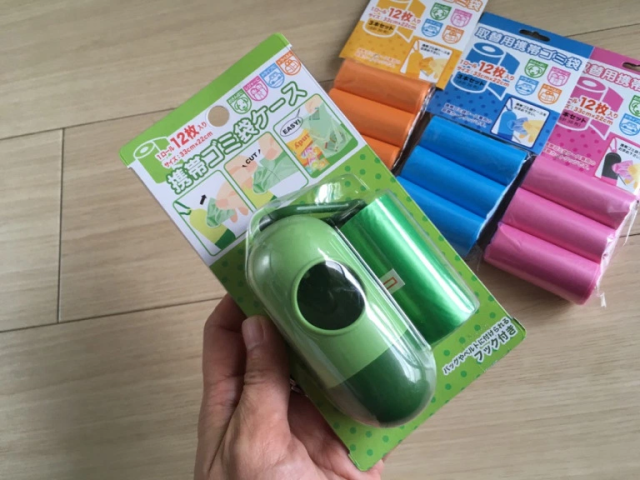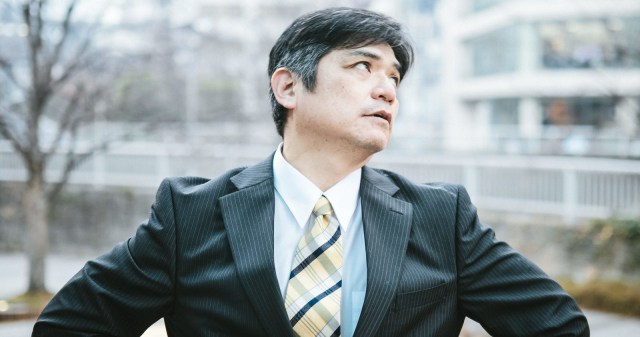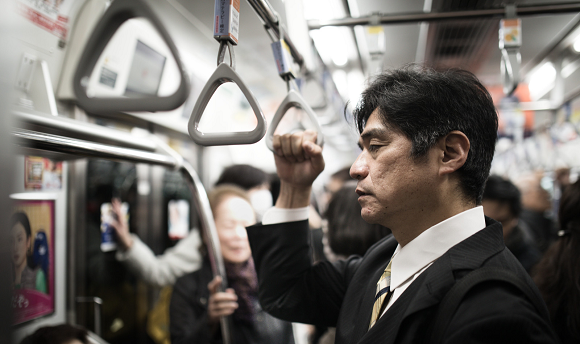Japanese intimate apparel maker investigates the tastes of Japanese men both hot-blooded and not, offers suggestions to capture their hearts.
society (Page 55)
American-educated councilwoman says she want to be “a spokesperson for other people of my generation who are in similar situations.”
Taking the time to sincerely think about the question “Who cares?” after a minor screw-up is part of what makes life in Japan great.
Are you an innovation-loving young professional? Brace yourself for the chance you’ll run into this aggravations working in Japan.
After Japanese man muses that doing chores will make him less attractive to a wife, women respond that a dude who helps out in home life is dead sexy.
Survey respondents see subtle signs of potential for a happy home life in female coworkers’ desks, lunches.
Older gentlemen show much greater willingness to share space with female fellow passengers.
Scantily clad spokesmen in Shibuya also help give a second chance to juvenile delinquents.


















 Super-salty pizza sends six kids to the hospital in Japan, linguistics blamed
Super-salty pizza sends six kids to the hospital in Japan, linguistics blamed Foreign tourists in Japan will get free Shinkansen tickets to promote regional tourism
Foreign tourists in Japan will get free Shinkansen tickets to promote regional tourism Starbucks Japan releases new sakura goods and drinkware for cherry blossom season 2026
Starbucks Japan releases new sakura goods and drinkware for cherry blossom season 2026 Starbucks Japan unveils new sakura Frappuccino for cherry blossom season 2026
Starbucks Japan unveils new sakura Frappuccino for cherry blossom season 2026 Tokyo’s best ramen breakfast? Restaurant two minutes from Tokyo Station is a strong contender
Tokyo’s best ramen breakfast? Restaurant two minutes from Tokyo Station is a strong contender Room 404: What happened when we stayed in an unlucky hotel room in Japan
Room 404: What happened when we stayed in an unlucky hotel room in Japan Foreigners accounting for over 80 percent of off-course skiers needing rescue in Japan’s Hokkaido
Foreigners accounting for over 80 percent of off-course skiers needing rescue in Japan’s Hokkaido Small Hokkaido bookshop’s unique service is getting business from all over Japan
Small Hokkaido bookshop’s unique service is getting business from all over Japan Overseas Edition of “Prince’s Proposal” Getting Turned Down by Fans: “Princes Look Disgusting”
Overseas Edition of “Prince’s Proposal” Getting Turned Down by Fans: “Princes Look Disgusting” And now, we eat a bear paw we bought in Japan’s Chiba Prefecture【Taste test】
And now, we eat a bear paw we bought in Japan’s Chiba Prefecture【Taste test】 Japan’s newest Shinkansen has no seats…or passengers [Video]
Japan’s newest Shinkansen has no seats…or passengers [Video] Take a trip to Japan’s Dododo Land, the most irritating place on Earth
Take a trip to Japan’s Dododo Land, the most irritating place on Earth Downloads of 39-year-old Guns N’ Roses song increase 12,166 percent thanks to Gundam
Downloads of 39-year-old Guns N’ Roses song increase 12,166 percent thanks to Gundam Is China’s don’t-go-to-Japan warning affecting the lines at a popular Tokyo gyukatsu restaurant?
Is China’s don’t-go-to-Japan warning affecting the lines at a popular Tokyo gyukatsu restaurant? A look back on 40 years of Japanese schools banning stuff
A look back on 40 years of Japanese schools banning stuff New Family Mart cinema opens inside Japanese airport
New Family Mart cinema opens inside Japanese airport Man arrested in Japan after leaving car in coin parking lot for six years, racking up three-million-yen bill
Man arrested in Japan after leaving car in coin parking lot for six years, racking up three-million-yen bill Starbucks Japan releases new drinkware and goods for Valentine’s Day
Starbucks Japan releases new drinkware and goods for Valentine’s Day Japan releases first official sakura cherry blossom forecast for 2026
Japan releases first official sakura cherry blossom forecast for 2026 Archfiend Hello Kitty appears as Sanrio launches new team-up with Yu-Gi-Oh【Pics】
Archfiend Hello Kitty appears as Sanrio launches new team-up with Yu-Gi-Oh【Pics】 China’s don’t-go-to-Japan warning looks to be affecting tourist crowds on Miyajima
China’s don’t-go-to-Japan warning looks to be affecting tourist crowds on Miyajima Studio Ghibli releases new “komorebi” plush toys from Princess Mononoke and Spirited Away
Studio Ghibli releases new “komorebi” plush toys from Princess Mononoke and Spirited Away Yokai are descending upon Tokyo this spring in the latest immersive art experience
Yokai are descending upon Tokyo this spring in the latest immersive art experience Japan’s Naruto theme park now offering real-world version of Minato’s kunai ninja weapon
Japan’s Naruto theme park now offering real-world version of Minato’s kunai ninja weapon Survey asks foreign tourists what bothered them in Japan, more than half gave same answer
Survey asks foreign tourists what bothered them in Japan, more than half gave same answer Japan’s human washing machines will go on sale to general public, demos to be held in Tokyo
Japan’s human washing machines will go on sale to general public, demos to be held in Tokyo We deeply regret going into this tunnel on our walk in the mountains of Japan
We deeply regret going into this tunnel on our walk in the mountains of Japan Studio Ghibli releases Kodama forest spirits from Princess Mononoke to light up your home
Studio Ghibli releases Kodama forest spirits from Princess Mononoke to light up your home Major Japanese hotel chain says reservations via overseas booking sites may not be valid
Major Japanese hotel chain says reservations via overseas booking sites may not be valid Put sesame oil in your coffee? Japanese maker says it’s the best way to start your day【Taste test】
Put sesame oil in your coffee? Japanese maker says it’s the best way to start your day【Taste test】 No more using real katana for tourism activities, Japan’s National Police Agency says
No more using real katana for tourism activities, Japan’s National Police Agency says Starbucks Japan reveals new sakura drinkware collection, inspired by evening cherry blossoms
Starbucks Japan reveals new sakura drinkware collection, inspired by evening cherry blossoms Room 404: What happened when we stayed in an unlucky hotel room in Japan
Room 404: What happened when we stayed in an unlucky hotel room in Japan Foreigners accounting for over 80 percent of off-course skiers needing rescue in Japan’s Hokkaido
Foreigners accounting for over 80 percent of off-course skiers needing rescue in Japan’s Hokkaido Small Hokkaido bookshop’s unique service is getting business from all over Japan
Small Hokkaido bookshop’s unique service is getting business from all over Japan Overseas Edition of “Prince’s Proposal” Getting Turned Down by Fans: “Princes Look Disgusting”
Overseas Edition of “Prince’s Proposal” Getting Turned Down by Fans: “Princes Look Disgusting” And now, we eat a bear paw we bought in Japan’s Chiba Prefecture【Taste test】
And now, we eat a bear paw we bought in Japan’s Chiba Prefecture【Taste test】 Testing Japan’s fluffy mayonnaise pancake cooking hack【SoraKitchen】
Testing Japan’s fluffy mayonnaise pancake cooking hack【SoraKitchen】 Take a trip to Japan’s Dododo Land, the most irritating place on Earth
Take a trip to Japan’s Dododo Land, the most irritating place on Earth Gundam water pistols turn squirt gun fights into galactic battles
Gundam water pistols turn squirt gun fights into galactic battles Foreign tourists on Shinkansen bullet train break suitcase etiquette, angering local passengers
Foreign tourists on Shinkansen bullet train break suitcase etiquette, angering local passengers Does the maxixe live up to its promise of being a whole new flavor for our Japanese reporter?
Does the maxixe live up to its promise of being a whole new flavor for our Japanese reporter? Princesses, fruits, and blacksmiths: Study reveals the 30 most unusual family names in Japan
Princesses, fruits, and blacksmiths: Study reveals the 30 most unusual family names in Japan Major Japanese bread producer begins selling croissants and cakes made from silkworms
Major Japanese bread producer begins selling croissants and cakes made from silkworms How to make a massive deep dish Chicago Pizza…in your rice cooker
How to make a massive deep dish Chicago Pizza…in your rice cooker